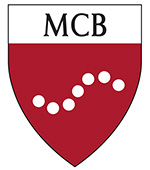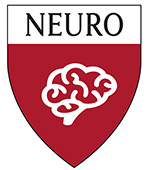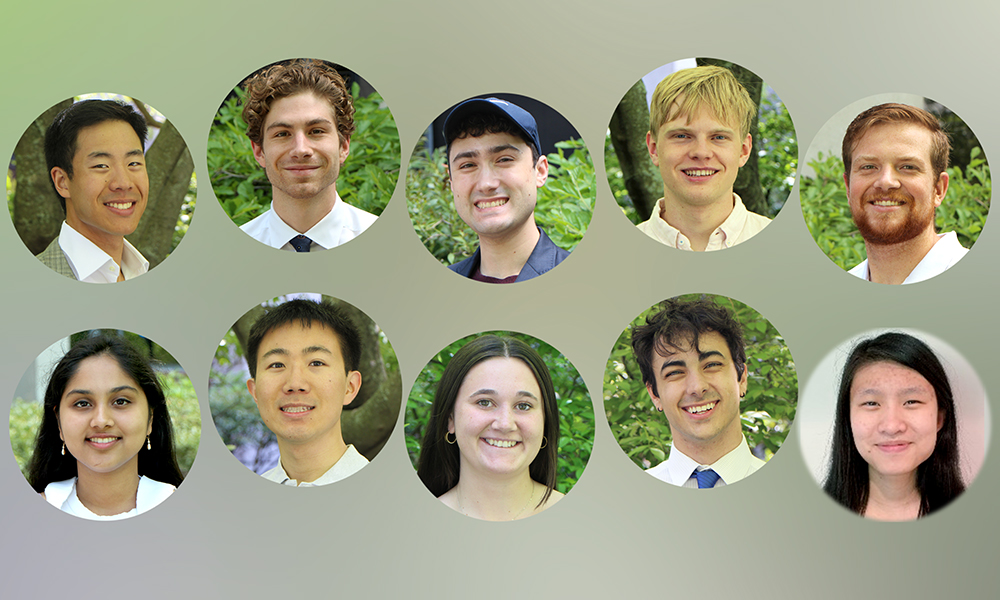Ten graduating seniors from concentrations administered by the Department of Molecular and Cellular Biology – CPB, MCB, and Neuro– have been elected to the academic honor society Phi Beta Kappa (PBK). Established in 1776, PBK is the oldest and most prestigious academic honor society for undergraduates in America. Members of the society are chosen based on the strength of their academic records and recommendation letters.
The new inductees into PBK are James Chen, Pierce Dietz, Ari Hilibrand, Conrad Hock, Jarom Larman, Maanasa Mendu, Christopher Meng, Alli Tompkins, Julian Wagner-Carena, and Paula Zhu.
In addition to excelling in coursework, the newly elected PBK members have also been enthusiastic contributors to student life and to initiatives with real-world impact. To learn more about the PBK electees and some of their proudest accomplishments, read on.
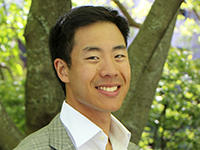
CPB concentrator James Chen led the Healthcare Outreach team at the national nonprofit Get Us PPE. The organization was able to arrange over 1,000 donations of vital personal protective equipment to hospital workers on the frontlines of the pandemic. Chen, who also earned a secondary in Economics, starts medical school at Columbia in the fall. “I’d like to thank my advisors and mentors in my courses who introduced me to a broad range of intellectual concepts, and my mentors in the Walker Lab at the Ragon Institute—Drs. Bruce Walker and David Collins—who invested in me and guided me to extend those lessons to real-world scientific problems,” he says.
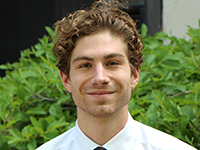
While at Harvard, MCB concentrator Pierce Dietze revived the aquatic therapy program Project Swim. The program helps girls with Rett Syndrome, as well as kids on the ASD spectrum and kids with Down Syndrome, develop their mobility, muscles, and socialization skills. In addition to his MCB concentration, Dietze earned a secondary in Psychology. After commencement, he will be working as a clinical research coordinator in Vikram Khurana’s lab at Brigham and Women’s Hospital while preparing to apply for medical schools. “I’d like to thank my parents for their unwavering support,” Dietze says. “They provided me with the confidence to challenge myself and always strive for more. I cannot thank them enough.”
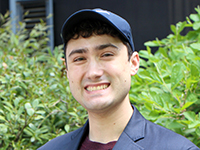
MCB concentrator Ari Hilibrand founded the Harvard Undergraduate Biomedical Sciences Forum, which promotes enthusiasm about medical research. He says the forum has grown into a “wonderful community.” Academically, Hilibrand also pursued a secondary in Near Eastern Languages and Civilizations. “I am grateful to all of the incredible educators who have taught and advised me over my four years at Harvard,” Hilibrand says. “In particular, I would like to thank (in alphabetical order): Professor Irit Aharony, Professor Nicholas Bellono, Professor Andrew Berry, Professor Monique Brewster, Dr. Antonia Chen, Professor Anne Harrington, Professor Greg Kestin, Dr. J.J. Kimche, Professor Andrew Kruse, Dr. Jenny Lai, Professor Jeff Lichtman, Professor Richard Losick, Professor Dominic Mao, Professor Shiv Pillai, and Dr. Jeffrey Smith.” Hilibrand will attend Harvard Medical School in the fall.
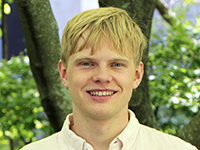
MCB concentrator Conrad Hock says conducting thesis research in Jason Buenrostro’s lab was a highlight of his time at Harvard. Hock worked on developing a method for investigating transcription factor binding and gene regulation. After graduating, he will conduct research at the Broad Institute for at least one year. He plans to eventually continue on to medical school.
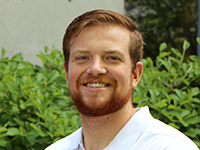
Jarom Larman concentrated in Neuroscience with a secondary in Psychology and a language citation in Russian. His thesis is one of his proudest achievements from his time at Harvard. “It was a lot of hard work and was not something that I necessarily had to do, and I am very satisfied with the results,” he says. Larman adds that he would like to thank his wife, Stevie, for her love and support.
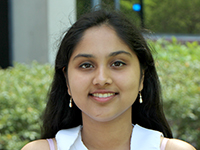
Neuroscience concentrator Maanasa Mendu also earned a secondary in Global Health and Health Policy. She says one of the achievements she is most proud of is helping to lead the Wellness Educators and Harvard Global Health Institute Student Advisory Committee. Mendu will begin medical school at Yale in the fall. She adds, “Thank you to my incredible professors, research mentors, friends, and family! Special thanks to Dr. Saad Hannan, Dr. Michelle LaBonte, and the LS50 teaching team for being passionate and amazingly effective educators. A shoutout to Dr. Laura Magnotti for guiding me through the neuroscience concentration. My deepest thanks to my research mentors – Dr. Eyal Kimchi, Dr. Luis Hernandez-Nunez, Dr. Wonyeong Jung, Dr. Nadege Nziza, and Dr. Scott Dryden-Peterson – for their encouragement to explore different research areas and invaluable support.”
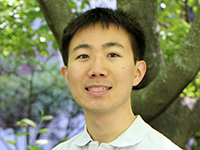
CPB concentrator Christopher Meng says that LS50 was “an amazing foundational course in my college experience.” He went on to conduct thesis research in the Balskus Lab. “Knowing the uncertainty of lab work, I was unsure whether I would complete all the objectives I had set for my thesis,” he says. “However, with the fantastic support of my PI, Prof. Emily Balskus, and my direct mentor, Dr. Zheng Cui, I was able to complete the primary aim of my research in bacterial enzyme discovery. Seeing how all the course concepts I learned are connected and relevant to my project was exciting, and I am very grateful to have had the opportunity to write a thesis.” He adds that he is thankful for the guidance provided by Dominic Mao, Monique Brewster, and Paula Fraenkel. Meng will attend medical school at Northwestern in the fall.
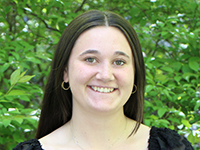
Alli Tompkins concentrated in MCB with a secondary in Social Anthropology. After commencement, she will be working as a research assistant in George Daley’s lab at Boston Children’s Hospital. Tompkins plans to eventually continue on to medical school. As an undergraduate, she spent two years conducting research on translation of circular RNAs in cancer cells and how the phenomenon contributes to treatment resistance. The project culminated with Tompkins’s thesis. “It was incredibly rewarding to see it all come together,” she says. “I would like to thank my friends for making Harvard the happiest place and my family for being my biggest supporters. Specifically, I would like to thank my mom and dad for believing I could do anything I set my mind to and giving me every opportunity to do just that.”
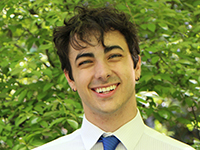
Neuroscience concentrator Julian Wagner-Carena studied on the Computational Neuroscience track and earned a secondary in Statistics. He also conducted research at Harvard as well as at the Allen Institute for Brain Science and at the Max Planck Institute for Biological Intelligence. Wagner-Carena contributed to a recent Science paper from the Lichtman Lab and will continue pursuing his passion for scientific research by joining the graduate neuroscience program at University of California, San Francisco. “I would like to thank my family, whether in Chicago or Argentina, for the love, support, and patience that have made me who I am today. I would like to also thank my friends, from home and at college, for all the memories, laughs, and love,” he says.
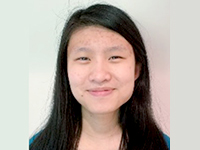
Neuroscience concentrator Paula Zhu graduated off-cycle in December 2023. She conducted thesis research in Mark Andermann’s lab where she used optogenetics to investigate a signaling pathway called cAMP. Her thesis was titled “PVH MC4R neurons integrate hunger vs satiety for feeding behavior via cAMP signaling.”



